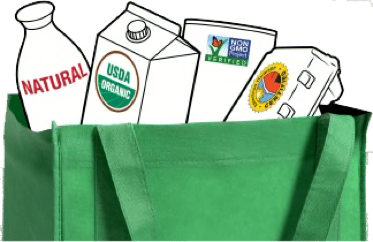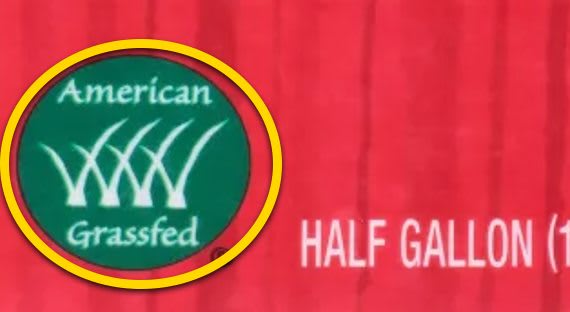Cows are fed only grass or forage (hay) throughout their lives, which is what their systems are naturally equipped to digest. All cattle raised for beef in the U.S. eat grass for the first part of their lives, but the norm in the livestock industry is to send the animals to feedlots several months before slaughter. At the feedlots, they're also given grain to promote faster weight gain. Grain creates an acidic environment in the cows' digestive tract, which can lead to abscesses, ulcers, and infection, so grain-fed cattle are often given antibiotics to prevent these conditions. Cattle raised for meat or dairy that carry the American Grassfed seal are raised on pasture-based farms that provide optimal nutrition from grazing, and are never fed grain, animal byproducts (such as chicken slaughterhouse waste), or antibiotics. At times of the year when there's little grass on the pasture, forage or silage (compacted grass) is used.
Farms are visited every 15 months by independent inspectors who also check the farm's records to ensure compliance with the standards.

Consumer Reports takes a detailed look at the requirements, definitions, standards, and verification procedures behind food labeling seals and claims, and distills this information into CR ratings. Our goal is to inform and empower consumers so they can act to create demand for a healthier, safer food system.
























